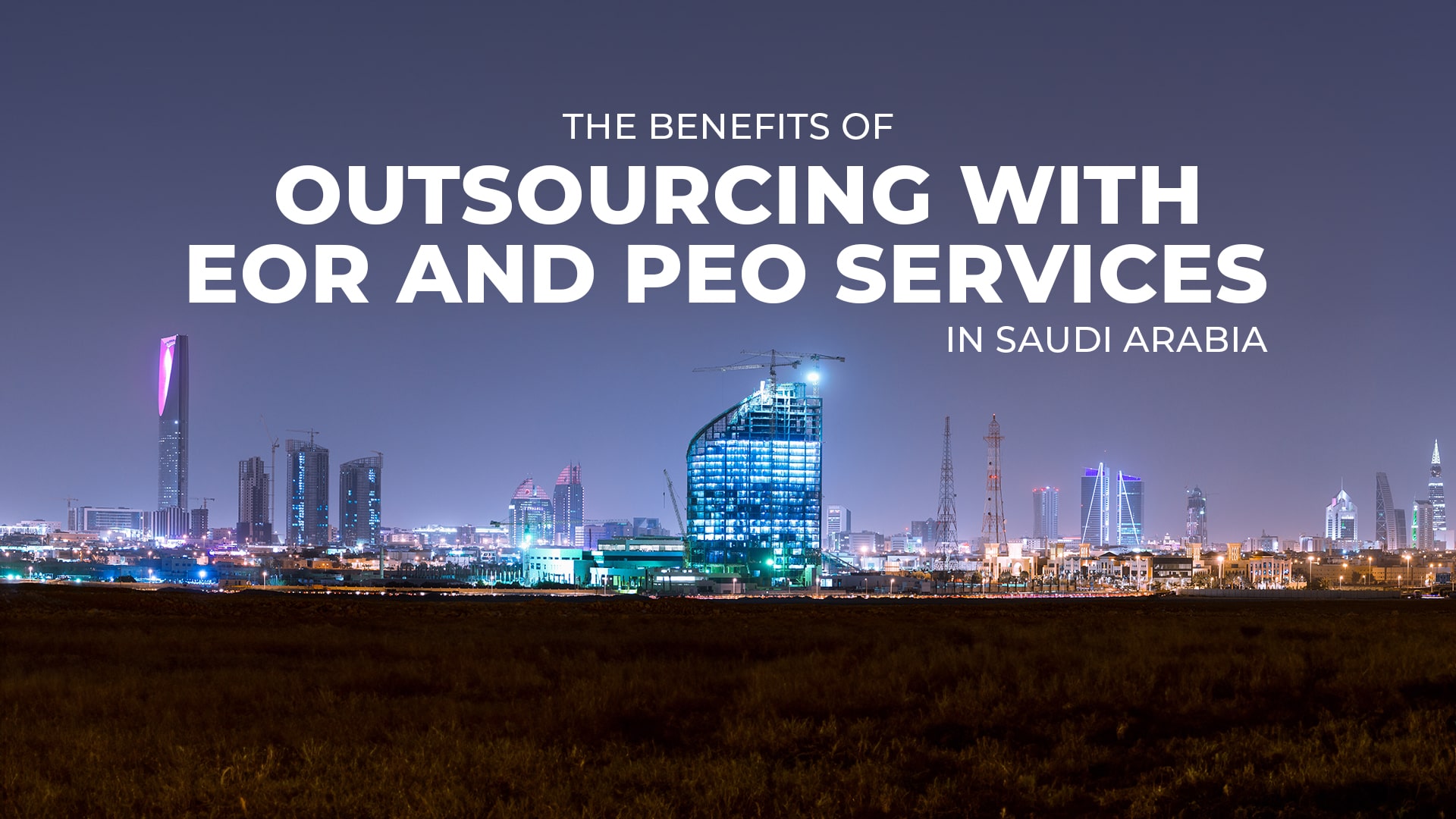Introduction
Embarking on a transformative journey, this blog ‘The Future of HR Consulting in Saudi Arabia: Opportunities and Challenges’ explores the dynamic landscape of HR consulting in Saudi Arabia. Unveiling a tapestry woven with technological advancements, cultural intricacies, and legislative shifts, we delve into the opportunities and challenges shaping the future of human resources consultancy in the Kingdom.
Table of Contents
Evolving Technological Landscape in HR Consulting in Saudi
The integration of emerging technologies such as Artificial Intelligence (AI), automation, and data analytics is ushering in a new era for HR consulting in Saudi Arabia. These advancements are revolutionizing traditional HR processes, creating a paradigm shift in how consultants approach talent management, employee engagement, and organizational development.
AI plays a pivotal role in streamlining recruitment processes by automating candidate screening, thereby saving time and resources. Data analytics, on the other hand, empowers HR consultants to make data-driven decisions, providing valuable insights into workforce trends, performance metrics, and employee satisfaction. Automation further enhances operational efficiency, allowing consultants to focus on strategic initiatives rather than mundane tasks.
In Saudi Arabia’s dynamic business landscape, these technologies are particularly crucial in addressing the unique challenges of a diverse and rapidly evolving workforce. The oil-rich nation is witnessing a demographic shift with a growing youth population, and AI-powered tools enable consultants to adapt to the changing expectations and preferences of this workforce.
Moreover, these technologies offer new opportunities for consultants to provide innovative solutions. Predictive analytics enables proactive talent management and succession planning, ensuring organizations are prepared for future skill requirements. Employee experience is enhanced through AI-driven personalized training and development programs, fostering continuous learning and growth.
While the benefits are apparent, challenges arise in navigating the cultural nuances of Saudi Arabia. HR consultants must ensure that AI algorithms and automation processes align with the cultural values and norms prevalent in the region. Successfully harnessing these technologies requires a delicate balance between innovation and cultural sensitivity, presenting both a challenge and an opportunity for HR consultants to pioneer transformative practices in the Kingdom.
Changing Workforce Dynamics
The Saudi Arabian workforce is experiencing a notable shift in demographics and expectations, posing both challenges and opportunities for HR consultants. With a growing youth population, there is a surge in tech-savvy and globally connected talent, altering the traditional workplace dynamics. Millennials and Gen Z employees are bringing new expectations, valuing work-life balance, career development, and a technology-driven work environment.
The challenge for HR consultants lies in adapting to this diverse set of needs and expectations. Crafting inclusive policies and fostering a culture that accommodates different generational preferences becomes imperative. Flexibility in work arrangements, personalized development plans, and leveraging technology for communication and collaboration are pivotal aspects of meeting these evolving expectations.
Simultaneously, these shifts open doors for consultants to innovate and redefine HR strategies. Embracing diversity and inclusion not only aligns with global best practices but also enhances organizational performance. HR consultants can champion initiatives to bridge the generation gap, fostering collaboration and knowledge sharing.
Moreover, the emphasis on digital transformation in the workforce creates opportunities for consultants to introduce cutting-edge technologies that resonate with the aspirations of the emerging workforce, thereby ensuring the Kingdom’s businesses stay competitive in the global market. Adaptation to this evolving landscape positions HR consultants as key architects of organizational success in Saudi Arabia.
Cultural Considerations in HR Consulting in Saudi
Cultural nuances in Saudi Arabia profoundly influence HR consulting strategies, necessitating a nuanced approach to align with the Kingdom’s values and traditions. In a society deeply rooted in Islamic principles, understanding and respecting cultural sensitivities is paramount for HR consultants. The hierarchical nature of businesses and the importance of personal relationships require consultants to navigate interpersonal dynamics with finesse.
Successful navigation of these cultural challenges involves incorporating local customs into HR solutions. For instance, designing training programs that respect religious observances and incorporating local traditions into employee engagement initiatives demonstrates cultural sensitivity. Consultants must recognize the significance of familial ties and incorporate this understanding into policies that accommodate family-related considerations.
Moreover, gender segregation and diverse interpretations of workplace norms require consultants to tailor their strategies. Offering flexibility in work arrangements and ensuring gender-inclusive policies are essential for successful implementation. Collaborating with local experts and forming partnerships with organizations that comprehend the cultural landscape can enhance consultants’ cultural intelligence.
By integrating cultural awareness into HR consulting strategies, consultants not only build trust with clients but also foster an environment where HR solutions resonate with the Saudi Arabian workforce. This cultural adaptability positions consultants as valuable contributors to organizational success in the Kingdom’s unique and dynamic business environment.
Legislative and Regulatory Landscape
Saudi Arabia’s HR-related regulations are undergoing a transformation, presenting both challenges and opportunities for HR consultants. The Kingdom has implemented reforms to enhance labor market efficiency and attract foreign investment. While these changes aim to create a more business-friendly environment, they also introduce complexities that demand careful consideration.
Challenges arise as HR consultants navigate the evolving legal frameworks, ensuring compliance with new regulations while meeting the specific needs of diverse businesses. For example, the introduction of Saudization policies, which prioritize the employment of Saudi nationals, requires consultants to devise recruitment and talent management strategies that align with these mandates.
Simultaneously, these regulatory changes present opportunities for consultants to offer expertise in interpreting and implementing new policies. HR consultants can provide valuable guidance on adapting human resource practices to remain compliant, such as developing Saudization-compliant training programs or optimizing workforce planning in accordance with regulatory requirements.
Strategies for compliance include staying abreast of regulatory updates, fostering partnerships with legal experts, and implementing robust HRIS systems that facilitate accurate record-keeping. Proactive engagement with regulatory authorities and continuous training for HR professionals on evolving compliance standards are essential. By embracing these strategies, HR consultants position themselves as indispensable partners in navigating the intricate regulatory landscape, ensuring both legal compliance and optimal workforce management for their clients in Saudi Arabia.
Remote Work and Virtual Collaboration
The global shift towards remote work has significantly impacted HR consulting practices, prompting a reevaluation of traditional methods. HR consultants are now faced with the challenge of fostering organizational cohesion, employee engagement, and talent development in a virtual setting. The absence of physical proximity requires a recalibration of strategies to address these critical aspects.
To overcome these challenges, HR consultants can leverage virtual collaboration tools and strategies. Communication platforms, project management software, and virtual team-building exercises become essential components of the consultant’s toolkit. Embracing digital solutions for recruitment, onboarding, and training allows consultants to reach and engage with talent irrespective of geographical boundaries.
Moreover, consultants must emphasize the importance of building a virtual company culture. Implementing regular check-ins, virtual town halls, and interactive workshops fosters a sense of belonging among remote employees. Tailoring employee engagement programs to suit the virtual environment, such as online wellness initiatives and virtual team-building events, contributes to a positive remote work experience.
In this evolving landscape, successful HR consultants embrace technology not only as a necessity but as an enabler of innovation. Virtual collaboration tools not only bridge the physical gap but also offer opportunities for more inclusive, flexible, and diverse HR consulting practices, catering to the changing dynamics of the modern workforce.
Talent Acquisition and Development Trends
In Saudi Arabia, the latest trends in talent acquisition and development reflect a growing emphasis on digitalization, upskilling, and cultural alignment. Companies are prioritizing candidates with digital skills to navigate the Fourth Industrial Revolution, aligning with the Kingdom’s Vision 2030 goals. Additionally, there is a surge in demand for culturally aware talent who can contribute to diverse and inclusive work environments.
HR consultants in Saudi Arabia encounter challenges in sourcing and retaining talent amidst this evolving landscape. Competition for top talent is fierce, and cultural considerations add a layer of complexity. To address these challenges, consultants can implement innovative solutions. Firstly, leveraging advanced data analytics and AI in talent acquisition processes enhances the efficiency of identifying suitable candidates. Secondly, developing tailored recruitment strategies that emphasize the organization’s commitment to diversity and inclusion attracts culturally aligned talent.
Retaining talent involves offering personalized development programs and creating a conducive work environment. HR consultants can design continuous learning initiatives, mentorship programs, and career progression pathways to enhance employee engagement and loyalty. Moreover, recognizing and accommodating the unique needs of a diverse workforce, such as flexible work arrangements, contributes to talent retention. By proactively adapting to these trends and implementing innovative solutions, HR consultants in Saudi Arabia can position their clients for success in acquiring and retaining the best talent.
The Role of HR Consultants in Organizational Transformation
The role of HR consultants in guiding organizations through periods of change and transformation is pivotal, especially in the dynamic business landscape of Saudi Arabia. Consultants act as strategic partners, facilitating seamless transitions in the face of technological advancements, cultural shifts, and evolving market demands.
Key skills for HR consultants in this context include effective communication, change management expertise, and cultural intelligence. Clear communication is essential to articulate the vision for change, addressing concerns and building buy-in among employees. Cultural intelligence is critical in the Saudi Arabian context, where consultants must navigate cultural nuances and sensitivities to implement changes successfully.
Strategies for facilitating successful organizational transitions involve creating a comprehensive change management plan that considers the unique aspects of the Saudi business landscape. Engaging leadership, fostering a culture of collaboration, and providing continuous employee support are crucial components. HR consultants must also tailor strategies to align with Vision 2030, emphasizing innovation, skill development, and Saudization initiatives.
Ultimately, successful consultants in Saudi Arabia guide organizations through change by blending global best practices with a deep understanding of local dynamics, ensuring a smooth transition that maximizes organizational resilience and agility.
Conclusion
In the ever-evolving realm of HR consulting in Saudi Arabia, opportunities and challenges intertwine, creating a mosaic of growth and adaptation. As we navigate the future, embracing technological advancements and cultural nuances, the consultancy landscape becomes a canvas for innovation. The journey ahead beckons, promising a dynamic and transformative path for HR professionals in the Kingdom.
For further inquiries or to learn more about our HR consulting services, please feel free to reach out to us. We hope you have enjoyed this blog ‘The Future of HR Consulting in Saudi Arabia: Opportunities and Challenges’.









